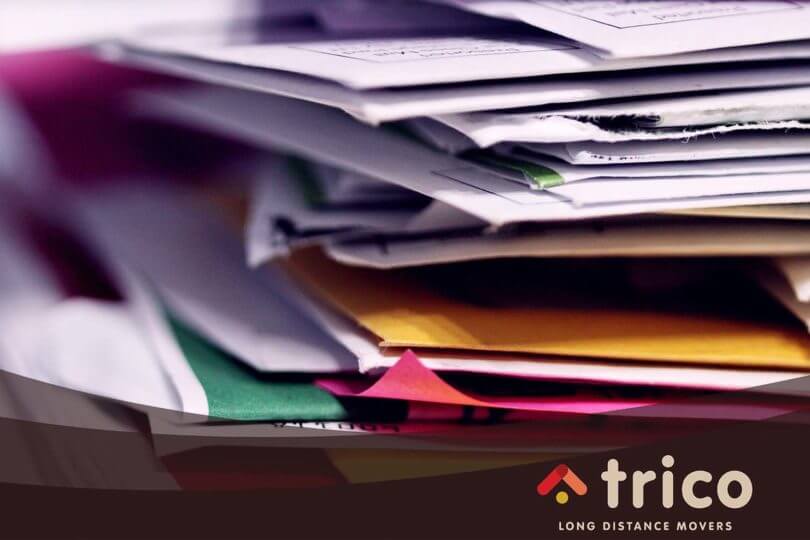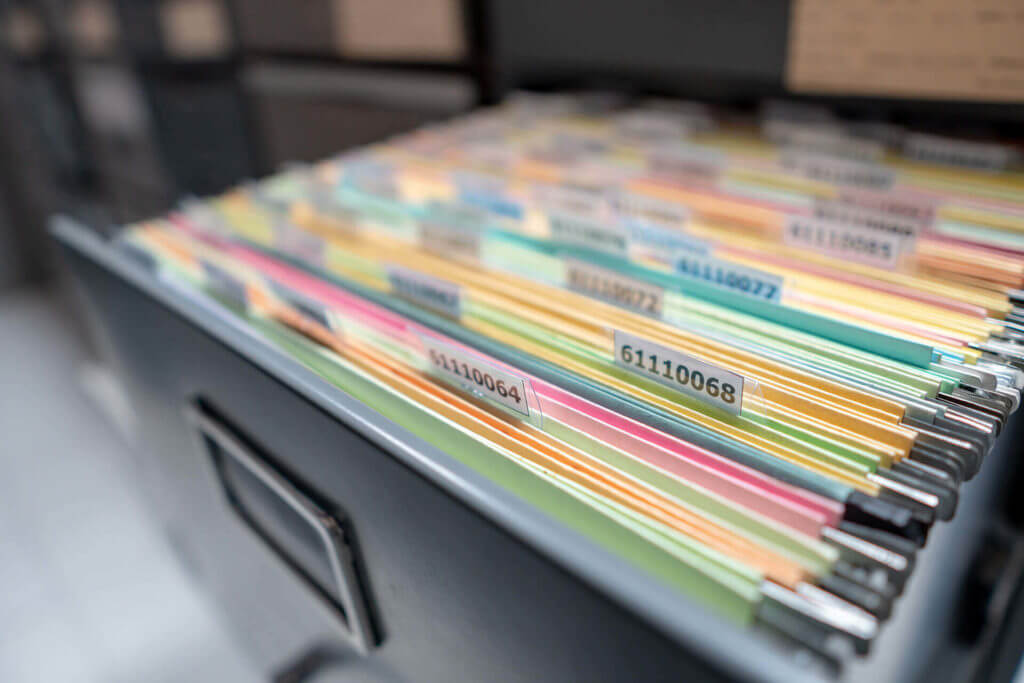Trying to find an important piece of paper and failing to do so is definitely one of the most challenging situations that everyone has experienced at least once in life. So it should come as no surprise, if you are wondering how to organize important documents at home, to want to know any time of the day or night where all your vital paperwork is. Missing documentation might prove especially thwarting if you’re planning long-distance relocation and need to obtain important documents as soon as possible.


Whether you’re moving for love or maybe relocating after college, we’ve got you covered. With our guide, organizing important documents will be a piece of cake. You’ll stop asking yourself where your certificates or receipts are because you’ll learn how to store important documents properly.
Papers of great importance are usually those you need to keep around “just in case.” They become significant when you’re facing big life events, such as having a baby, making a will, or buying a new home. As you get older and more responsible, you’ll realize you should start keeping them in a safe and easily accessible place. Let’s have a look at what kind of paperwork this documentation includes:
Yes, one thing that pops up into your head is saving all this documentation on a hard drive, and there’s no doubt it’s a useful option. But, if you think a little further, you’ll realize that many bills and mail still arrive like a hard copy, and you just can’t avoid that. Also, computers crash all the time, and hard drives fail or get lost. When moving cross country, it gets tricky, and you may forget to do disk backup. These are the most common things people forget when moving, so, why risk? One of the most important things to do before moving should be to print your documentation out and think about how to organize your move without worries.
Whether you’re moving a business to another state or just moving with kids and relocating to a smaller home, we’ll help you find out what steps you should follow when organizing important paperwork.
In order to organize your filing system correctly, you should obtain some items to mitigate your moving stress and speed up the process. With these tools and supplies, your documentation and declutter will be minimal:

If you find it difficult to start dealing with all the paperwork in your home, remember that this process will give you the answer to the question of how to organize important papers. Every beginning is hard. This one is specific because it’s demanding but relatively straightforward – you should gather all your documentation into the same space. This way, you’ll have a chance to sort them and toss or recycle those you don’t need anymore. Just as it is practical to have a moving to-do list before your relocation, the same goes for having all important paperwork in one spot. And here’s why:
Decide on each piece of a document – whether it’s for saving, recycling, or tossing. So, after doing that, you’ll very soon have five categories:

According to some research, one in four Americans forgot or lost critical financial records, and only 40 percent could locate crucial papers if needed. If you want to be in this second group, you should realize the importance of some paperwork. Because they are valuable, you should keep them away from the wrong hands. How to properly store this documentation? When doing that, keep in mind that you should place them close at hand, but safe from theft, flood, fire, and other possible emergencies.
If you want to have complete peace of mind, get a safe deposit box. Most banks or credit unions can provide this service. This box is perfect for storing the originals, like wills (living will and last will), marriage and birth certificates, annual tax returns, etc. But what’s the catch? When you need some of this paperwork, you should plan it because you can’t get it immediately. So, make copies of the documentation and keep it in a safe place at home on hand.
Place records you keep at home or copies of important paperwork in a fireproof place and make sure it has a secure locking mechanism. Avoid storing financial paperwork with your private information or large amounts of cash at home. Homeowners insurance usually covers a small amount of money in case of a theft, and not the documentation that might be stolen along with cash.
What is the best protection from any wear and tear, flood, or sunlight? One reliable option is using plastic page slips. First, put a document in a plastic sleeve, and then file it in a box or binder, inside your safe place.
It’s recommended to shred the paperwork you no longer need. This is the safest way to protect your personal data from criminals. The advice is to never throw out a receipt from the transaction you used your credit card for. That’s because your name or number are likely on the receipt.

Here are some useful tips on how to make finding and filing important documentation as smooth as possible:
Don’t accumulate unnecessary papers – filter out junk mail and archive or shred paperwork that is no longer relevant. Do a big sweep every three to six months and keep your documentation shipshape.
When storing files digitally, you don’t need to handle space challenges. Also, by using your laptop’s or computer’s search tool, you can significantly shorten search time. Follow the same patterns for e-labels as for physical ones. You can back up your files on Google Drive or an external hard drive.

Now that you know the difference between vital paperwork and not-so-important ones, it’s useful to find out how long you should keep them:

You’ve realized until now that organization is a key when it comes to storing your essential documentation properly. With a unique organizational system, you can create a specific filing system to your liking, where all records will be stacked neatly. Follow these handy tips, and you’ll have less stress during your everyday living:
Once you systematize all your paperwork, keep them that way. Incoming papers are a regular occurrence each month, so make sure to file any new paper in the appropriate category. Regular monthly maintenance is just necessary as a general annual purge. You can perform it twice a year – at the first of the new calendar year and the end of the school year. If you’re consistent in this activity, it will become your habit sooner than you imagine, and you can reap the long-term benefits of organizing important documents.

If you’re moving across the country soon, one of the first preparatory steps is to find out how to organize documents and prepare important paperwork. In addition to hiring long-distance movers for their moving and packing services, you’ll probably count on the company’s help for auto transport. Car shipping is quite a straightforward process if you possess all the necessary paperwork related to your vehicle. Once you’ve organized your documentation, you will be able to find any piece of paper you need fast and quickly. The same goes for your cross country relocation. Whether you’re moving in with elderly parent, organizing your office move, or are house hunting oriented, with all personal identification documentation in one spot, even a last-minute move won’t be a problem for you.